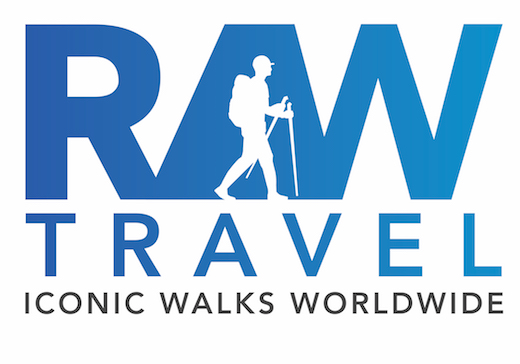

RAW Travel

Victoria, Australia
September 2019
Other recreation
Service with Minor Environmental Footprint
Australia,
France,
Italy,
Japan,
New Zealand,
Portugal,
Slovenia,
Spain,
Switzerland,
United Kingdom
RAW Travel is Australia’s leading international walking company. RAW specialises in self-guided walks and is Australia’s leader for the Camino, Kumano Kodo and other pilgrimage walks. Founded by avid walkers and responsible travel advocates David and Melinda Reynolds, RAW is a family-owned business with a proud history of operating walks and charity challenges for 20+ years. Since RAW’s inception, ‘adventure’ has been RAW’s DNA and forms an inherent part of their business strategy, culture and customer-experience. They consciously chose to focus on walking to ensure minimal footprint, maximum immersion in nature and culture and a real opportunity for a self-challenge - pushing personal limits.
Overall B Impact Score
Governance 17.6
Governance evaluates a company's overall mission, engagement around its social/environmental impact, ethics, and transparency. This section also evaluates the ability of a company to protect their mission and formally consider stakeholders in decision making through their corporate structure (e.g. benefit corporation) or corporate governing documents.
What is this? A company with an Impact Business Model is intentionally designed to create a specific positive outcome for one of its stakeholders - such as workers, community, environment, or customers.
Workers 27.5
Workers evaluates a company’s contributions to its employees’ financial security, health & safety, wellness, career development, and engagement & satisfaction. In addition, this section recognizes business models designed to benefit workers, such as companies that are at least 40% owned by non-executive employees and those that have workforce development programs to support individuals with barriers to employment.
Community 26.3
Community evaluates a company’s engagement with and impact on the communities in which it operates, hires from, and sources from. Topics include diversity, equity & inclusion, economic impact, civic engagement, charitable giving, and supply chain management. In addition, this section recognizes business models that are designed to address specific community-oriented problems, such as poverty alleviation through fair trade sourcing or distribution via microenterprises, producer cooperative models, locally focused economic development, and formal charitable giving commitments.
Environment 16.2
Environment evaluates a company’s overall environmental management practices as well as its impact on the air, climate, water, land, and biodiversity. This includes the direct impact of a company’s operations and, when applicable its supply chain and distribution channels. This section also recognizes companies with environmentally innovative production processes and those that sell products or services that have a positive environmental impact. Some examples might include products and services that create renewable energy, reduce consumption or waste, conserve land or wildlife, provide less toxic alternatives to the market, or educate people about environmental problems.
Customers 3.5
Customers evaluates a company’s stewardship of its customers through the quality of its products and services, ethical marketing, data privacy and security, and feedback channels. In addition, this section recognizes products or services that are designed to address a particular social problem for or through its customers, such as health or educational products, arts & media products, serving underserved customers/clients, and services that improve the social impact of other businesses or organizations.